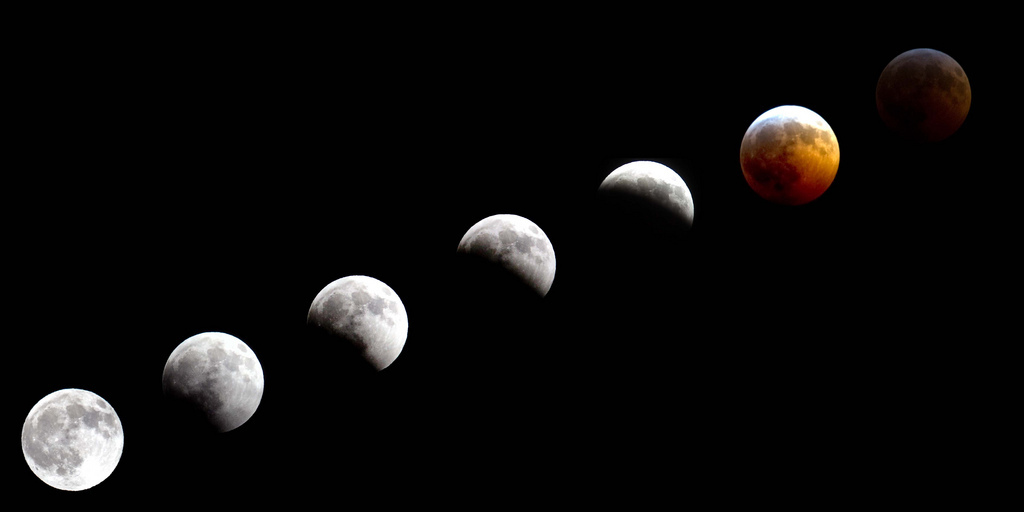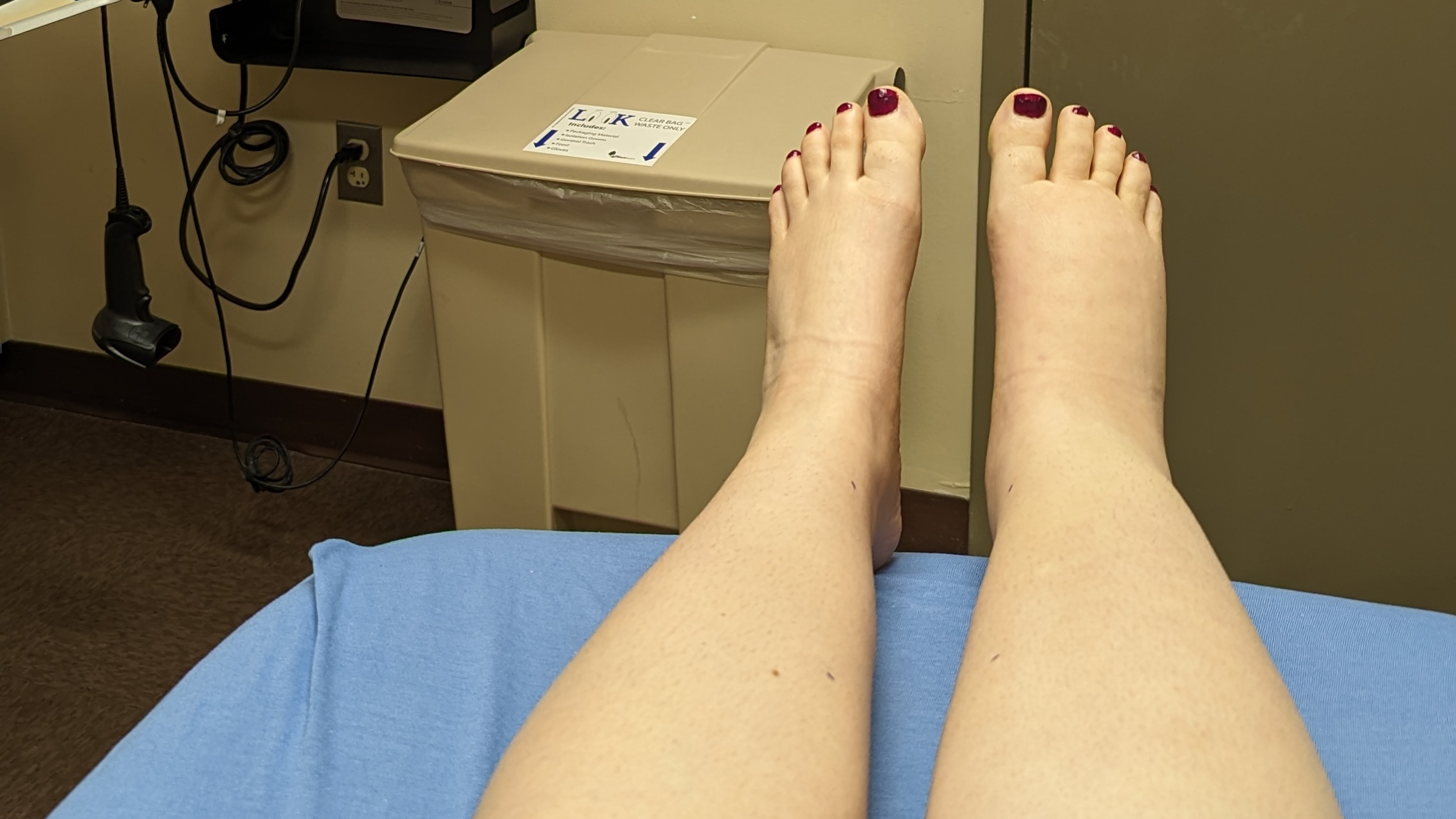Last night featured a rare celestial event: a lunar eclipse coincided with a supermoon, which is a full moon that appears larger because it’s at the closest point of its orbit with Earth. This is the first time the two phenomena have coincided since 1982, and it probably won’t happen again until 2033.
I sat on my porch and watched the moon, colored red in the Earth’s umbral shadow, as it disappeared and reappeared through the slowly passing clouds, and I thought about the meaning of what I was seeing. In ancient and medieval history, both solar and lunar eclipses were often considered bad omens or portents of disaster. A sudden darkness in the middle of the day would have been a frightening thing to witness, after all, especially with no context or understanding of astronomy in which to frame it. People turned to superstition and religion in efforts to explain what was happening, as seen in this excerpt from a poem by the 7th century BCE Greek poet Archilochus:
Nothing can be surprising any more or impossible or miraculous, now that Zeus, father of the Olympians, has made night out of noonday, hiding the bright sunlight, and fear has come upon mankind. After this, men can believe anything, expect anything.
Over the course of time, as people began to record the occurrences of eclipses and develop the science of astronomy further, eclipses weren’t such a terrifying, unknown thing. With knowledge and insight, people were able to look at this celestial phenomenon from a completely new perspective and understanding; it was something to appreciate and marvel over, to study and examine, and to learn from, rather than be feared.
I started reflecting on the symbology of eclipses, of the significance of things being revealed over time and of trusting in the things we cannot control, and it reminded me of my experience with lymphedema. Like the Earth’s shadow eclipsing the moon, my lymphedema had, at first, felt like an eclipse of myself.
 The initial symptoms and diagnosis were scary and bewildering, and like Archilochus described, it felt like an abrupt night had been made out of my bright daytime. I was fearful, especially because the swelling was out of my control: I could not make it go away or disappear. In those early post-diagnosis years, the swelling seemed to be its own portent of doom, foretelling a hopeless future of being alone and misunderstood, deemed unlovable and unworthy because of my leg. I thought my life was ruined, and that I would be forever living at the mercy of this condition.
The initial symptoms and diagnosis were scary and bewildering, and like Archilochus described, it felt like an abrupt night had been made out of my bright daytime. I was fearful, especially because the swelling was out of my control: I could not make it go away or disappear. In those early post-diagnosis years, the swelling seemed to be its own portent of doom, foretelling a hopeless future of being alone and misunderstood, deemed unlovable and unworthy because of my leg. I thought my life was ruined, and that I would be forever living at the mercy of this condition.
However, after I was able to meet with doctors that actually knew about lymphedema, and after I was able to receive treatment for the first time, it wasn’t so scary anymore. Armed with a new knowledge and understanding of lymphedema as a medical condition as well as the various ways I can maintain my swelling through continued treatment, I felt capable again. Although my lymphedema required a lot of changes to be made in my lifestyle and a shift in my priorities, it certainly was not going to ruin my life like I had thought before. The eclipse passed, and the proverbial sunlight returned.
There are still unknowns, a lot of which are dependent on things beyond my control, like how the lymphedema will progress as I get older. Those sorts of unknowns used to terrify me, but now I am able to regard them from a place of acceptance, knowing I can only do what is within my control—the compression garments, the manual lymph drainage massages, the elevation—and make it a point to keep up with those things as consistently as possible. I have to trust in the things I can control, rather than get upset over the things I cannot.
Like the ancient people realizing that the world was not coming to an end when the sun seemed to disappear from the sky, I realize that my lymphedema does not eclipse who I am. When you feel like it’s the end of the world, remember it’s merely a passing shadow.
Header image by The National Guard on Flickr.




Leave a Reply to ShameikaCancel reply